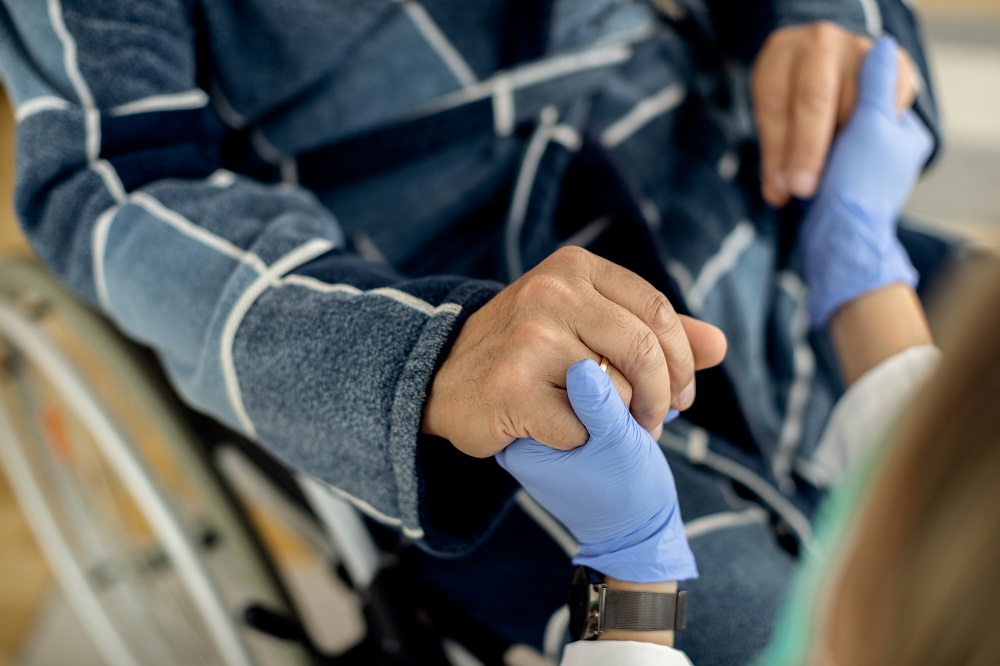Multiple sclerosis is a chronic disease that affects the central nervous system, primarily the brain and spinal cord. In this condition, the immune system mistakenly attacks myelin, which is the protective coating on nerve fibers. This disrupts communication between the brain and the rest of the body, causing a variety of symptoms.
What are the first symptoms of multiple sclerosis?
Initial symptoms can vary widely between individuals, but the most common ones include:
- Vision problems – such as blurred vision or pain when moving your eyes.
- Muscle weakness : difficulty walking or performing everyday tasks.
- Extreme fatigue : a feeling of tiredness that does not go away with rest.
- Numbness or tingling : in the face, legs, or arms.
- Coordination problems : such as frequent falls or clumsiness when moving.
If you notice any of these symptoms, it is important to see a doctor as soon as possible.
Is multiple sclerosis hereditary?
Not exactly. Although MS is not considered a hereditary disease, certain genetic factors can increase your risk. Having a close relative with MS may slightly increase your chances, but it is not a guarantee that you will develop the disease.
What are the causes of multiple sclerosis?
The exact cause is still unknown. However, researchers believe it is the result of a combination of factors:
- Genetic factors : hereditary predisposition.
- Environmental factors : such as living in areas with less sun exposure (vitamin D deficiency).
- Viral infections : Certain viruses, such as Epstein-Barr, may be involved.
How is multiple sclerosis diagnosed?
Diagnosing MS is not simple and requires several tests:
- Magnetic resonance imaging (MRI) : to look for lesions in the brain and spinal cord.
- Lumbar puncture : to analyze cerebrospinal fluid for abnormalities.
- Neurological tests : to assess reflexes, coordination, and motor function.
Is there a cure for multiple sclerosis?
Currently, there is no cure. However, there are treatments that can reduce the frequency and severity of flare-ups, as well as slow the progression of the disease. Treatments typically include disease-modifying medications, physical therapies, and lifestyle changes.
What can I do during an outbreak?
A flare is a period when symptoms temporarily worsen. Here are some recommendations:
- Consult your doctor : he or she may prescribe corticosteroids to reduce inflammation.
- Get enough rest : but try to maintain light activity to avoid muscle stiffness.
- Lean on your rehabilitation team : Physical and occupational therapists can help you regain skills.
Can I continue working if I have multiple sclerosis?
Yes, many people with MS continue to work, although they may need adjustments. For example:
- Request flexible schedules.
- Adapt the work environment to reduce physical strain.
- Break large tasks into smaller steps to avoid fatigue.
Talking openly with your employer can help you find solutions that fit your needs.
How can I manage fatigue?
Fatigue is one of the most common and challenging symptoms. Some strategies include:
- Establish a regular sleep schedule.
- Prioritize important activities and delegate less urgent tasks.
- Maintain a balanced diet and drink enough water.
- Incorporate light exercise such as yoga or swimming.
Is it possible to exercise with multiple sclerosis?
Yes, and in fact, it is beneficial. Regular exercise can improve your strength, balance, and mood. Consult a physical therapist to design a program tailored to your needs.
How does diet affect multiple sclerosis?
There is no specific diet for MS, but certain foods can help reduce inflammation and improve your overall well-being. Aim for a diet rich in:
- Fruits and vegetables.
- Healthy fats such as those found in avocado and nuts.
- Fish rich in omega-3, such as salmon.
Avoid ultra-processed and high-sugar foods, as they can increase inflammation.
Multiple sclerosis can seem scary, but medical advances and management strategies have greatly improved the quality of life for those who suffer from it. Every case is unique, and working as a team with your doctors, therapists, and family members is key to meeting the challenges.
If you have any further questions or need support, at RehabOT , our clinic in Malaga, we are here to help. Our rehabilitation specialists will be with you every step of the way.
Leave us your data to start your treatment







